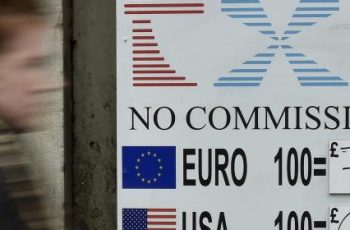Ad Blocker Detected
Our website is made possible by displaying online advertisements to our visitors. Please consider supporting us by disabling your ad blocker.
Making the decision as to where you will trade the forex markets is an important one. Your broker or bank will essentially act as your trading partner, allowing you to execute, analyze and learn about currency pairs. Not only will your bank, or broker facilitate trades, it will help you manage your positions and balances while you attempt to generate returns. There are several differences between the offerings provided by banks and brokers, which you should be aware of prior to depositing your capital.

There Does Currency Trading Take Place
The interbank market provides the most liquidity and greatest volume of currency trades globally. Large banks are the back bone of this market as the work through electronic markets providing online trading. The interbank market provides the necessary liquidity needed to flow down to the retail level where individuals trade futures, CFDs and ETFs to generate risk in the currency markets
How Do Banks Participate
Large multinational banks are the most active, generally having specific department allocated to driving currency revenue. Many banks have sales and trading desks. These profit centers are focused on providing liquidity to customers and taking on risk. In some cases, banks will hold proprietary positions for weeks or months, looking for the market to move their way. These banks are considered forex dealers providing their clients with bids and offers telling clients where they will purchase and sell a specific currency pair.
What Does a Forex Broker Do?
A Forex broker executes transaction for its institutional and retail clients. Brokers can generate revenue in several ways. Some use a commission structure while other capture the bid to ask spread. Brokers typical trade with banks and other brokers to offset the risks they generate with retail and institutional clients. Most of the trading takes place in an electronic over the counter market. Many banks also trade within this market.
Commission and Spreads
Forex brokers will either charge you a commission for each trade or capture their revenue by using a spread. A commission is a flat or variable fee per the execution of each trade. The spread is the difference between where your broker is willing to buy a currency pair and where its willing to sell a currency pair. For example, you might see a bid offer spread on the EUR/USD of 2-pips (1.2502 versus 1.2504). The brokers attempt to buy on the bid and sell on the offer to capture the 2-pip spread as revenue.
The Difference Between Banks and Brokers
The biggest difference between banks and brokers is who they serve and what they offer. Large banks are usual cater to large institutional clients, allowing them to use an electron exchange to execute transaction. Most of the time the interface is specifically geared to execution. Most banks that participate in the interbank market require large transaction and stellar corporate credit.
A forex broker caters to the retail investor, offering an online trading app. In addition to offering execution capabilities a forex broker will also generally offer graphing capabilities, educational material and real-time news. Brokers are focused on an all in on approach where a client can use their platforms for all their investing needs.



